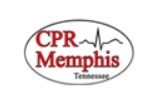9 Things You Must Know About HIV/AIDS By Andrea Fobert
Call Us Now
Get the Best CPR Class in Memphis Today!
HIV is a serious virus that takes over one’s immune system and eliminates the body’s ability to fight infection. Once the body has a lowered immune system it becomes vulnerable to cancer and many other mild and life-threatening diseases. This illness became known as an epidemic in the homosexual community in the early 1980s. However, over the past thirty-plus years, the research on the virus has hit many milestones and is no longer feared as a deadly disease.
- HIV stands for human immunodeficiency virus, which is broken down as a virus that attacks your immune system by destroying cells that assist in fighting disease and infection. However, unlike most viruses, your body is not able to get rid of HIV over time.
- AIDS stands for acquired immune deficiency syndrome, which is described as a complex illness that is contracted, after birth, when your immune system is working poorly. It is the late stage of the HIV infection.
- HIV lives in blood and other body fluids and can be transmitted through sexual contact, pregnancy, childbirth, breastfeeding, injection drug use, occupational exposure, blood transfusion, or organ transplant.
- The HIV attacks important cells in your immune system, known as T-cells and CD4 cells. These cells are responsible for fighting disease and infections. As a result of HIV destroying these cells, your immune system is impaired dramatically and can eventually lead to AIDS.
- The first sign of infection is an illness similar to a severe case of the flu and usually occurs anywhere between 2 weeks and 3 months after transmission. This illness is known as Acute Retroviral Syndrome (ARS) and the symptoms include fever, chills, rash, night sweats, muscle aches, sore throat, fatigue, swollen lymph nodes, and ulcers in the mouth. Although this is a common sign of HIV infection, not every individual experiences it.
- Symptoms of AIDS are mostly the result of opportunistic infections due to a damaged immune system. These symptoms can include fatigue, diarrhea, nausea, vomiting, fever, chills, night sweats and wasting syndrome. Wasting syndrome is the uncontrollable loss of 10% of body weight, mostly the loss of muscle mass.
- The most common action in treatment is using Antiretroviral Therapy, which is the use of different kinds of medication to keep HIV from growing and multiplying. This will also prevent the late stage of AIDS.
- In the United States, one in six people infected with the HIV infection are unaware of their infection. It is very important to be tested for HIV once a year.
- The number one way to reduce your risk of contracting HIV is to use condoms consistently and correctly.
HIV is a very serious condition that can lead to death if not treated.
Unfortunately, there is no vaccination or cure for the HIV/AIDS virus. However, there are many things you can do to help maintain a healthier life after transmission, such as daily exercise, a nutritious diet, getting plenty of sleep, avoiding alcohol/tobacco/drugs, and getting regular checkups. Prevention is in the hands of each individual. The most important step toward proper prevention is knowing the illness and being proactive about making healthy and safe choices.
Reference
Call Us Now
Get the Best CPR Class in Memphis Today!
“HIV/AIDS Basics”. Aids.Gov. 2012. Web. 9 December 2013. < http://aids.gov/hiv-aids-basics/>.









